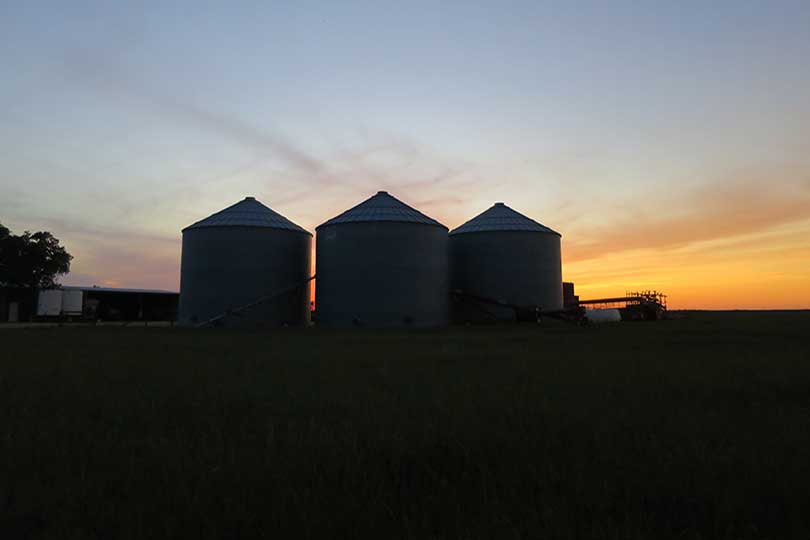By Jessica Domel
Multimedia Editor
Farmers and ranchers have just a few more days to file important paperwork with the Internal Revenue Service (IRS) or face penalties for failing to do so.
The deadline to file a 1099 for contract laborers is now a month earlier than in years past. Previously, the copy to be filed with the IRS was not due until the end of February.
“You’ve got to get it all done by Jan. 31 this year, both the copy sent to the recipient as well as the copy filed with the IRS,” Kraig Fields, Certified Public Accountant and shareholder at Jaynes, Reitmeier, Boyd and Therrell, PC in Waco, said. “You’ve got to gather names, Social Security numbers and addresses so you can issue a 1099 to people you have paid more than $600 during the year.”
Business owners are not required to fill out a 1099 when buying a product, like hay, from someone. But if you paid someone to bale hay for you, you’d need to produce a 1099 because they provided a service.
Form 1096 is a summary page that accompanies the Form 1099-Miscellaneous indicating the number of 1099s being filed.
Farmers and ranchers who paid rent to someone should also indicate those payments on the same form.
“It’s difficult to get those. You can electronically file them, but you have to be set up to do so,” Fields said.
Not all IRS offices have the form. They can also be found online and at certain stores, such as Staples and Office Depot, for purchase.
The deadline to file a tax return for a partnership has moved up to March 15 instead of April 15.
Looking to the new year, Fields said now may be the time to consider when to make equipment purchases or whether to wait until later in the year.
“Whether you buy equipment or a vehicle Jan. 1 or Dec. 31, the write-off is the same,” Fields said. “If you need it, you can get it now with the benefit of using it all year. If it’s more for the tax benefit, wait to see what kind of year you’re going to have. Typically, the best deals on trucks are at the end of the year.”
Before buying equipment, look to see what year the deduction would be most advantageous to you. See what tax bracket you are in, and if you can, purchase new equipment and take the deduction in the year of the higher write-off.
Fields, who has a small ranch and cow-calf operation, notes it’s important to visit with a tax professional to discuss what expenses can legitimately be deducted.
“If it’s not a big operation, you want to make sure you’ve eliminated the IRS from classifying it as a hobby loss. They don’t like small farmers or ranchers with only two or three cows arguing they can write it all (equipment and structures) off with three cows,” Fields said. “Very often, on a return that’s under audit, if it has a schedule F on it, the IRS is going to look at that and say you have to prove it’s not a hobby or they’ll disallow the losses.”
In that case, the farmer or rancher will have to fight the “hobby loss” and explain why there’s been a continued loss over the last several years and there is an intent and plan to reflect a profit in future years.
As the average age of the American farmer increases, many prepare to pass on their land to the next generation or possibly to sell the land.
“Right now, capital gains are preferentially taxed. Farmers may want to consider an installment sale, where they elect to carry part of the note. They might be able to save some taxes over a period of time, particularly if it’s a fairly significant gain,” Fields said.
Assets up to $5.49 million for individuals and almost $11 million for a married couple may be passed on to the next generation without incurring an estate or inheritance tax.
“In addition to it passing on estate tax free, if it goes through their will, the heirs get a step-up in basis on the fair market value (by death only). If the heirs sold it immediately, there would be no gain and no tax to pay,” Fields said. Future appreciation would be taxed upon a later sale of the inherited property.
Landowners can gift property during their life, but the heir will not receive a step-up in basis. Those who inherit land through death do get a step-up in basis.
“There’s some planning that needs to be done here,” Fields said. “You give up a step-up in basis, but you accomplish keeping future appreciation out of the estate.”
If


Great article. EVery farmer needs this info. Thanks so much.
This is very important !!!! Thanks for sharing !!
as some one who has been wanting to restore the ranch her grandparents had,, I really appreciate these articles…this will be the first year for us that we will be having someone bail the hay…nice to know in advance what forms we will be having to file ahead of time.